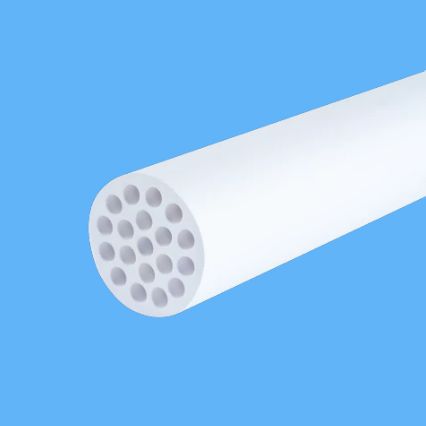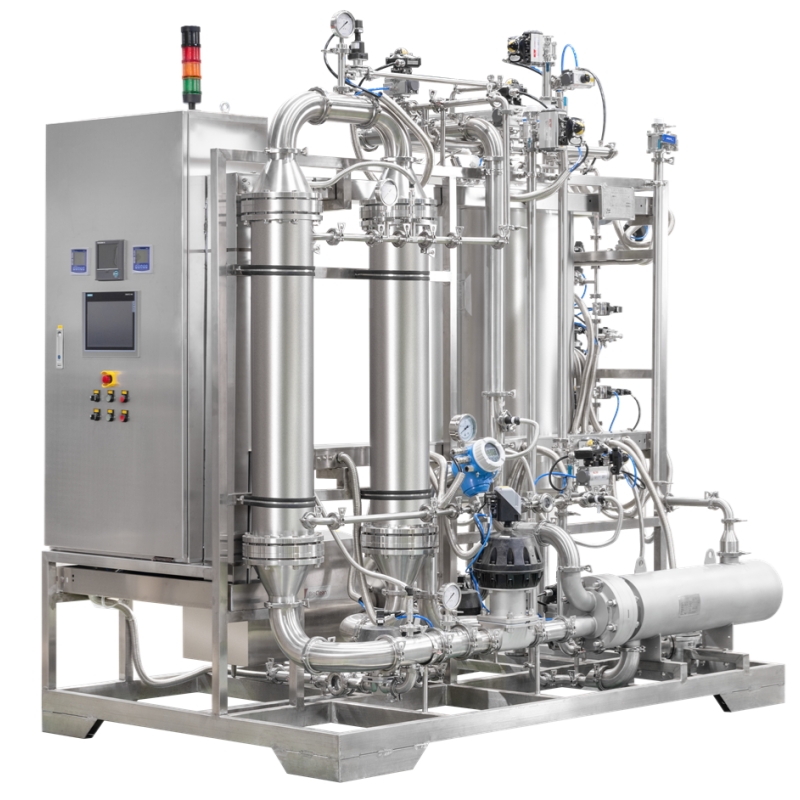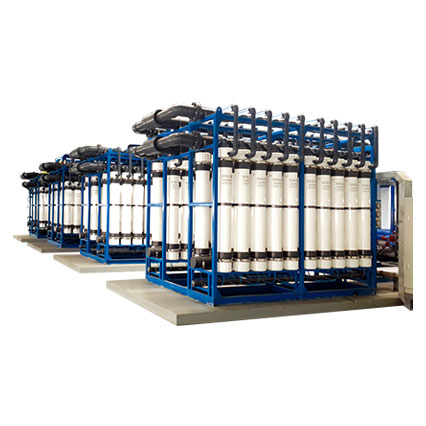Process :
Solution for high-quality edible liquid salt :
The technology of ceramic membrane brine purification is used for continuous liquid salt purification without adding any flocculant and scale inhibitor.
Self-developed and exclusively self-retained technology of ceramic membrane normal saline (NS) purification
Self-developed food potassium chloride (low sodium salt raw materials) production technology
Self-developed and exclusively self-retained technology of ceramic membrane primary brine purification
Investment is less than traditional batch sedimentation method
Power consumption of per ton salt is increased by 3KW. H.
Evaporator can not be fouled for a long time due to high-quality refined brine (SS<0.5mg/l , Ca2 ++Mg2 ++<0.5mg/l)

Advantages :
1.Without adding flocculant
Compared with traditional process, continuous reaction filtration, without flocculation & settlement, without numbers of large intermittent clarification tanks, without organic flocculant inhibitor residues in the edible liquid salt are the most remarkable features.
2.Resistant to pollution
It is suitable for all kinds of brine.
Inorganic ceramic membrane has excellent antifouling ability, and adopts efficient "cross flow" filtration mode, and runs under high concentration of pollutants (5~10%). It is completely suitable for raw materials with high sulphuric acid and high magnesium content.
3.High filtration accuracy
The pore size of ceramic membrane is less than 50nm.
4.Stable &high quality refined brine
The SS value of filtrate brine is less than 0.5ppm which results in reducing the possibility of evaporator scaling .
5.Long service life
High quality, high strength inorganic tubular ceramic membrane is not subject to acid, alkali and oxidant which works for 5 years under 1MPa working pressure.
6.Small footprint
Due to short process, less equipment, simple process control and operation, installation area and construction area can be greatly reduced compared with other technologies.
The newly built 1 million ton vacuum salt brine refining plant has a total of 2 floors with a size of 9m × 40m.
Technology introduction:
Brine from outside battery limit goes into reaction tank by brine pump after heated by steam mixer. Refining agent sodium hypochlorite,sodium carbonate and sodium hydroxide are added into the baffle tank where brine enters reaction tank.
After finishing dosing, crude brine is formed in the reaction tank. Sodium hypochlorite oxidizes and decomposes organic matters in the crude brine, and sodium carbonate reacts with calcium ions in the crude brine to form crystal precipitates of calcium carbonate, sodium hydroxide reacts with the magnesium ions in the crude brine to form a colloid precipitate of magnesium hydroxide. The crude brine completes the refining reaction and flows into the middle tank by gravity, and is sent to ceramic membrane filtration unit by feed pump after more than 1.0mm of mechanical impurities inside crude brine are removed by a coarse filter.

The inorganic membrane filtration unit adopts three-stage series "cross-flow filtration" mode. Crude brine pumped by feed pump is sent to the first stage filtering module through circulation pump and then concentrate coming from the first stage filtering module goes into the second filtering module, finally concentrate coming from the second stage filtering module goes into the third filtering module.
A small part of concentrated brine is discharged into salt sludge tank according to a certain proportion and concentration where flows out from the third filtering module outlet and the rest returns circulation pump inlet and mixes with crude brine send by a feed pump, which the ratio of solid-liquid of feed brine is got to adjust. The mixed brine flows into circulation pump inlet and starts a new cycle filtration through circulation pump which concentrates solid content is controlled and membrane velocity is also ensured.
Purified brine filtered by three-stage filtering modules is collected through permeate outlet of each filtering module and sent to make second brine purification by primary brine pump after mixing with sodium sulfite in the refining tank.
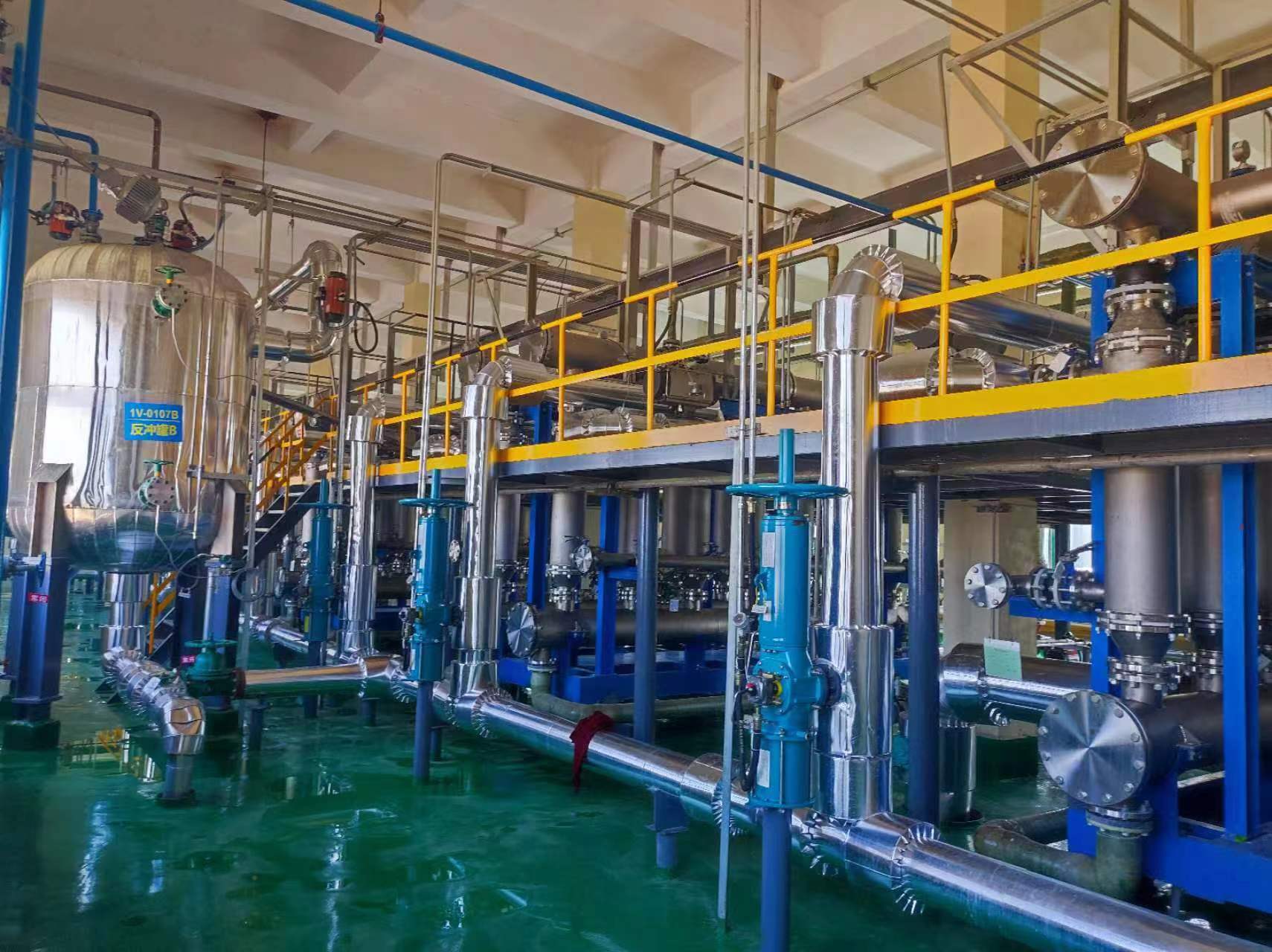
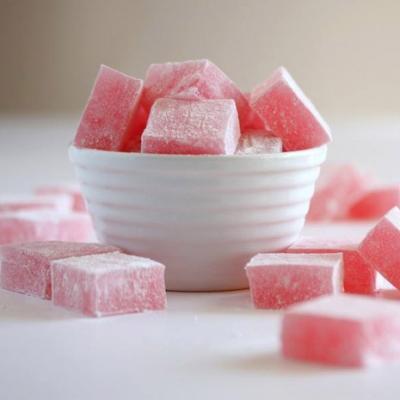

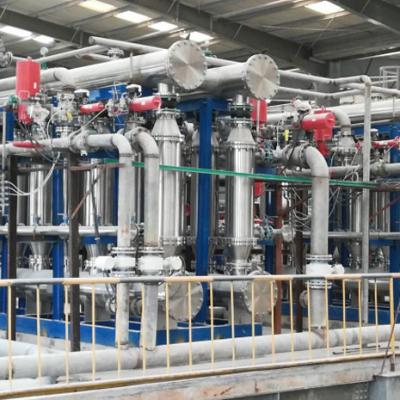
we will contact you within 24 hours.
 +86-25-58849045
+86-25-58849045
 +86-25-58749295
+86-25-58749295
 jiuwu@jiuwu.com
jiuwu@jiuwu.com
 No. 9 Park Road, Pukou District, Nanjing City (Sanqiao Factory)
No. 9 Park Road, Pukou District, Nanjing City (Sanqiao Factory) Call us on:
Call us on:  Email Us:
Email Us:  No. 9 Park Road, Pukou District, Nanjing City (Sanqiao Factory)
No. 9 Park Road, Pukou District, Nanjing City (Sanqiao Factory)

 English
English 한국어
한국어 français
français русский
русский Español
Español